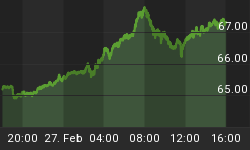Disagreements on how to address Greece's reform process boiled over this week when European Central Bank (ECB) President Trichet walked out of a meeting. Trichet warned if Greece were to extend the maturity of existing debt, theECB would stop supporting Greece.
We have long argued that it is not in Greece's interest to default at this stage because Greece needs to get its primary deficit under control before restricting its debt. As further reforms are implemented, the risk/reward ratio for Greece will change to potentially favor a default to reduce its debt burden. Delaying any default benefits Greece because any default now would impose an immediate adjustment of the primary deficit as it may be impossible to get new loans at palatable terms.
However, if ECB deserts Greece, the risk/reward assessment for Greece is changing. If the ECB gets too tough on Greece, dynamics in Greece may drive political dynamics to favor a default or even a re-introduction of the drachma.
Mind you that this would not be in Greece's interest: a default now won't fix Greece's underlying structural issues. Leaving the eurozone might cause an implosion of Greece's financial system. But from Greece's point of view, if they feel deserted by the ECB, political dynamics may favor the worst of the bad choices at hand.
As far as the banking system in the rest of the eurozone is concerned, we know that central banks, including the ECB, are bad poker players. If the ECB indeed pushes Greece over the brink though, they would provide ample support to the rest of the banking system. It would certainly expedite the process of raising more capital in the eurozone banking system (some of which through national governments).















